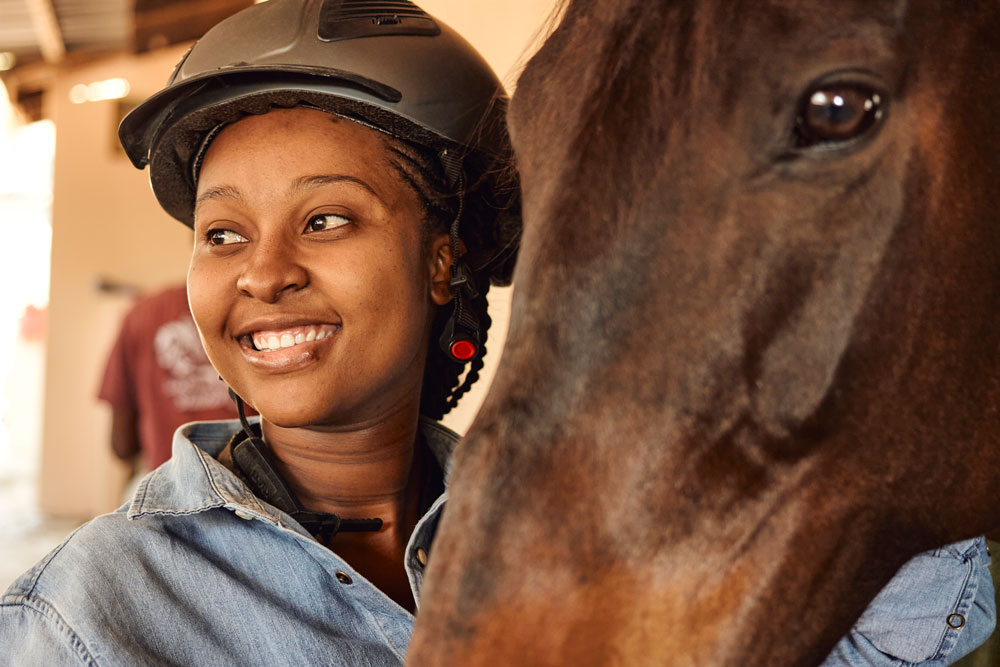
When Greta “Jade” Krafsig was a kid, she asked her mother for riding lessons. The answer was no. Her mother’s reasoning—she wouldn’t pay for an hour on a horse that cost more than she made an hour at her own job. Horses weren’t practical when every penny went to food, utilities and keeping a house over the family’s head.
Since Krafsig couldn’t have a real horse, she learned computer programming skills and created a virtual horse game. Within a year, the profits she made from her game funded riding lessons. Krafsig said she was the only person of color at every stable she rode at for many years. The comments she received at those stables were discouraging.
“It took me [trying] several different stables until I found the one I loved and would whole-heartedly take me under its wing and treat me like an actual person,” she said. “I found that my presence there changed their perception of what an African American rider could do and be.”
These are the things that stood out the most when she started a riding program at her Warrenton, Virginia, farm. At her White Oak Stables, she strives to offer affordable options for kids from underrepresented areas and ethnic backgrounds to feel safe, included and encouraged around horses.
When the Black Lives Matter movement accelerated in 2020, she found online black and minority equestrian groups growing in membership and wanted to do more at her stable. She launched a diversity program at her barn to create opportunities for raising awareness and increasing access to horses for African Americans, Native Americans, Asians, Pacific Islanders and Hispanics.
“It’s a place where all people are unequivocally treated equally, despite their differences,” she said. “A place that is affordable and fosters the love and enthusiasm I have for horses that I would like to pass on to others.”


